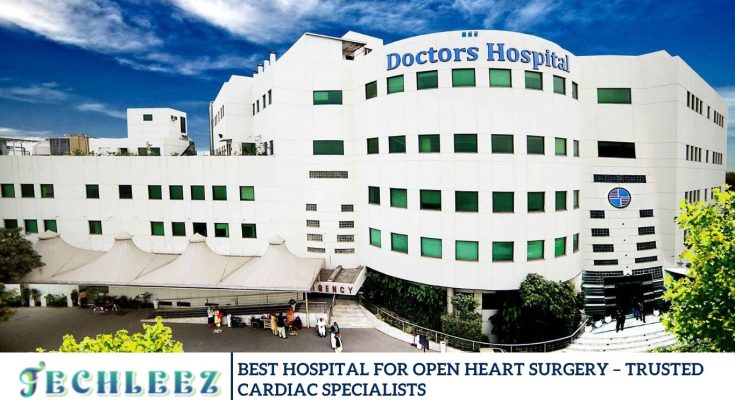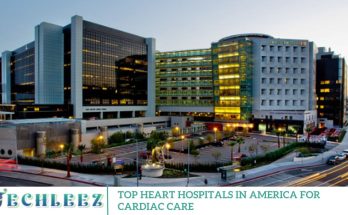Open heart surgery is a vital procedure designed to treat severe cardiovascular conditions such as blocked arteries, congenital heart defects, and valve disorders. Selecting the right hospital for open-heart surgery is a crucial decision that can significantly impact a patient’s recovery and long-term well-being. In this article, we will explore what defines a hospital specializing in open-heart surgery, how these facilities operate, key features to consider when choosing one, and the advantages and disadvantages associated with them. Additionally, we will discuss alternative options for those who may not have access to specialized cardiac centers.
Open heart surgery is one of the most complex and critical procedures in cardiac care. When faced with severe heart conditions such as blocked arteries, valve diseases, or congenital disabilities, choosing the best hospital for open heart surgery is essential for a successful outcome. In this article, we examine what distinguishes a hospital as a leader in open-heart surgery, the qualities of trusted cardiac specialists, and how to choose the right cardiac center for your needs.
What is the Hospital for Open Heart Surgery?
A hospital for open-heart surgery is a specialized healthcare facility that provides advanced cardiac care, focusing on surgical procedures that require opening the chest to access the heart. These hospitals feature cutting-edge cardiac catheterization labs, modern operating rooms, and intensive care units (ICUs) specifically designed to support patients with cardiac conditions.
Staffed by highly skilled cardiothoracic surgeons, anesthesiologists, perfusionists who manage heart-lung machines, and dedicated cardiac nurses, these hospitals combine expert care with state-of-the-art technology. Their primary focus is on diagnosing, treating, and surgically correcting complex heart conditions to improve patient outcomes.
How Hospital for Open Heart Surgery Operates
Hospitals that perform open heart surgery follow a carefully coordinated, multidisciplinary approach to ensure the best patient outcomes:
Pre-Operative Evaluation: The journey begins with a comprehensive assessment that includes imaging tests such as CT scans, MRIs, and echocardiograms, along with blood work and a thorough physical examination to determine the necessity of surgery.
Surgical Planning: A team of specialists, including cardiologists and cardiothoracic surgeons, collaborates to develop a surgical plan tailored to the patient’s specific condition, ensuring the most effective treatment.
The Procedure: Open heart surgery involves opening the chest through a sternotomy. The heart is temporarily stopped while a heart-lung machine takes over circulation and oxygenation. The surgeon then performs the required intervention, whether it’s a coronary artery bypass, valve repair or replacement, or heart transplant.
Post-Operative Care: After surgery, patients are moved to the intensive care unit (ICU) for close monitoring. Recovery focuses on pain management, infection prevention, and beginning cardiac rehabilitation.
Long-Term Follow-Up: Successful outcomes depend on ongoing care, including regular follow-up visits, adherence to prescribed medications, and lifestyle modifications to support heart health and prevent complications.
Who Are Trusted Cardiac Specialists?
Trusted cardiac specialists are highly trained healthcare professionals who specialize in the diagnosis, treatment, and surgical management of heart diseases. They include:
- Cardiothoracic Surgeons: Experts in performing open heart surgeries, including bypass grafting, valve repair/replacement, and complex cardiac procedures.
- Cardiologists: Physicians specialized in non-surgical management of heart diseases and who coordinate care before and after surgery.
- Anesthesiologists: Specialists who manage anesthesia and monitor vital functions during surgery.
- Perfusionists: Technicians who operate the heart-lung machine to maintain circulation and oxygenation during surgery.
- Cardiac Nurses: Nurses explicitly trained in cardiac care, providing crucial support throughout the surgical process and recovery.
- The reputation of cardiac specialists often reflects the overall quality of the hospital in which they practice. Board certifications, years of experience, and patient reviews are good indicators of trusted expertise.
Frequently Asked Questions
What makes a hospital the best for open heart surgery?
The best hospitals for open-heart surgery combine advanced technology, experienced cardiothoracic surgeons, multidisciplinary care teams, high surgical success rates, and comprehensive pre-and post-operative care to ensure the best patient outcomes.
How do I find trusted cardiac specialists for open heart surgery?
Trusted cardiac specialists are usually board-certified cardiothoracic surgeons and cardiologists with extensive experience in heart surgery. Look for hospitals that publicly share their specialists’ credentials and surgical outcomes.
What kind of facilities should a top hospital for open heart surgery have?
Leading hospitals feature state-of-the-art cardiac catheterization labs, advanced operating rooms, specialized cardiac intensive care units (ICUs), and advanced diagnostic imaging tools, including echocardiograms, CT scans, and MRIs.
How vital is post-operative care in open heart surgery?
Post-operative care is crucial for recovery. The best hospitals offer comprehensive care, including intensive monitoring, pain management, infection prevention, and cardiac rehabilitation programs, to help patients recover fully and minimize complications.
Can I choose a hospital solely based on its location?
While location and accessibility are essential, the quality of care and surgical expertise should be the top priorities. Sometimes, traveling to a specialized cardiac center with proven outcomes is worthwhile.
Are there alternatives if I don’t have access to a specialized open-heart surgery hospital?
Yes, some general hospitals offer competent cardiac surgery services. Telemedicine consultations with specialists from top cardiac centers can also help manage care when specialized hospitals aren’t nearby.
What should I ask during my consultation with cardiac specialists?
Ask about the surgeon’s experience with your specific procedure, the hospital’s success rates, risks involved, expected recovery time, and post-operative care plans.
Conclusion
Choosing the best hospital for open heart surgery is a life-changing decision that requires careful consideration of hospital facilities, surgical expertise, patient outcomes, and support services. Trusted cardiac specialists and multidisciplinary care teams are key to ensuring successful surgery and recovery. By understanding what sets leading cardiac hospitals apart, patients and their families can make informed choices for optimal heart health.




